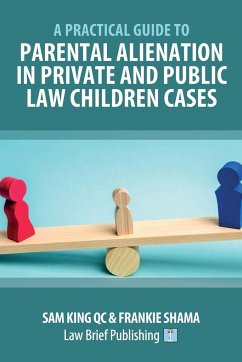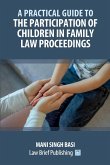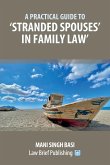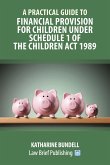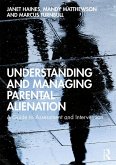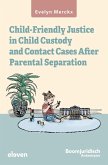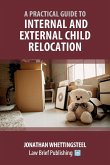The existence and definition of parental alienation has been the subject of consistent debate over the years. It is now broadly summarised as a child's resistance or hostility towards one parent, which is unjustified and the result of psychological manipulation by the other parent, and is a concept that private children practitioners over recent years have been grappling with increasingly frequently in practice. This book provides the reader with a history of the emergence of parental alienation as a concept. It charts some of the debate around its definition and scale within the Family Court. It considers the court's general approach to making child arrangements orders in cases where a child rejects or resists spending time with one parent post-separation. This book also looks at parental alienation in conjunction with allegations of domestic abuse and coercive and controlling behaviour, and the court's application of Practice Direction 12J of the Family Procedure Rules 2010. In considering the intersection between these two issues, it provides an insight into some of the challenges the Family Court faces in assessing a child's rejection of resistance to spending time with the other parent in circumstances where it is unclear if there is a legitimate reason or cause. Crucially, this provides a unique toolkit for practitioners based on judicial commentary from recent judgments as to how to practically manage cases featuring allegations of parental alienation. It looks at the options available to the court to promote contact and manage a relationship between an alienated child and parent, including but not limited to enforcement options; therapeutic options; section 37 reports and public law interventions; the joinder and separate representation of children, and transfers of residence. ABOUT THE AUTHORS Sam King QC is a barrister at 4PB. Her main area of practice is in children's law. She is regularly instructed in both private and public law cases. She represents all parties in complex cases involving allegations of sexual abuse or where there are psycho-sexual factors in issue, non-accidental injury, psychiatric ill-health, intractable contact cases and where shared residence is in issue. Frankie Shama is a barrister at 4PB. He practices in all aspects of children's law, with a focus on private law proceedings and proceedings involving the international movement of children. He accepts instructions at all stages of proceedings, and has a particular interest in intractable contact cases and cases involving allegations of domestic abuse. CONTENTS Chapter One - Defining Parental Alienation Chapter Two - General Principles Regarding Contact Chapter Three - Parental Alienation and Domestic Abuse Chapter Four - Procedurally Managing Cases Involving Allegations of Parental Alienation Chapter Five - Options Available for the Court Chapter Six - the Voice of the Child Chapter Seven - Transfers of Residence Chapter Eight - Parental Alienation and Public Children Proceedings
Hinweis: Dieser Artikel kann nur an eine deutsche Lieferadresse ausgeliefert werden.
Hinweis: Dieser Artikel kann nur an eine deutsche Lieferadresse ausgeliefert werden.

